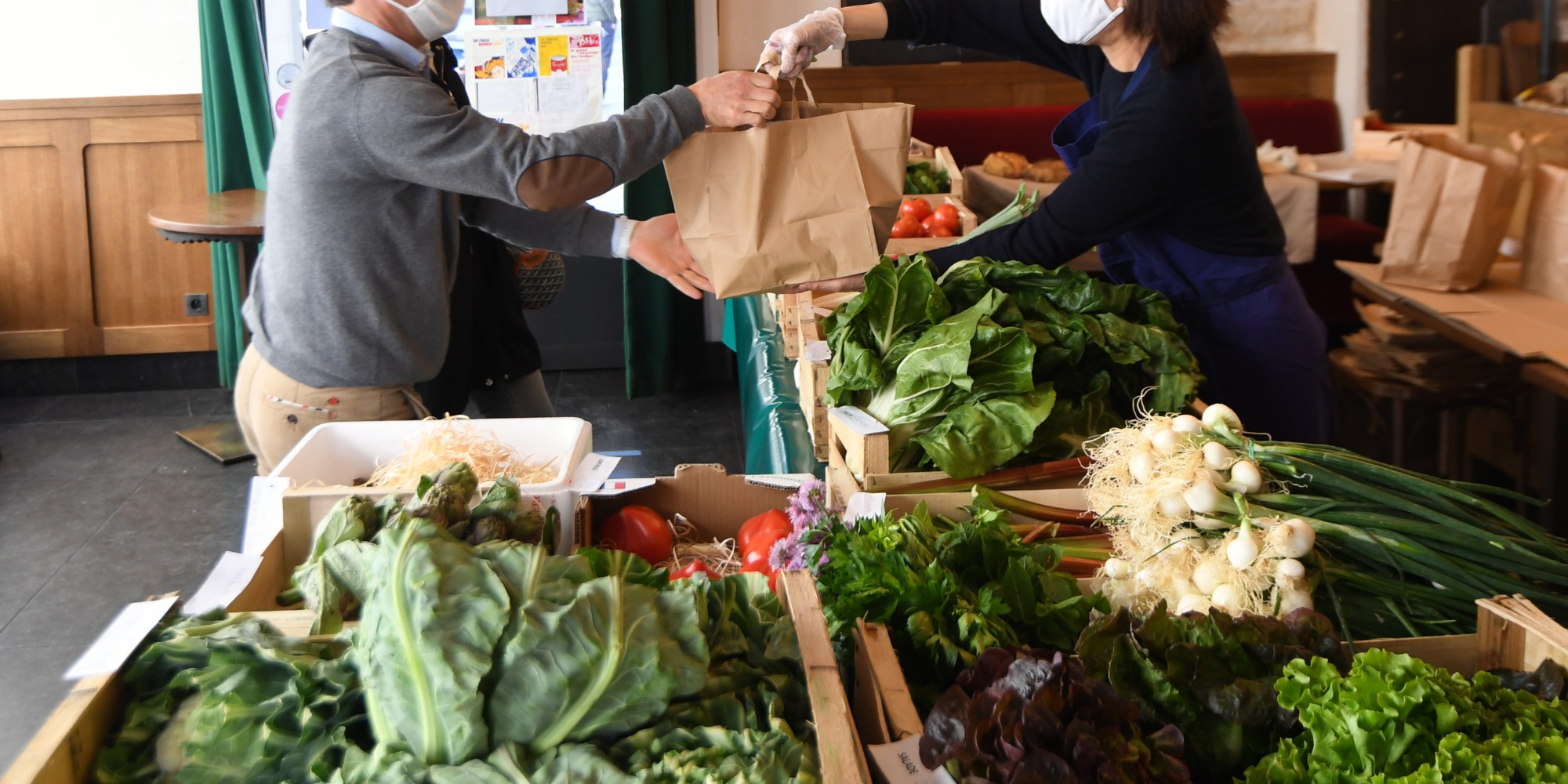The Covid-19 pandemic has not affected the entire agricultural sector in the same way.
Thus, fruit and vegetable producers have been able to protect themselves against the effects of the crisis when the meat industry is more than ever suffering.
REPORT
At the Nantes National Interest Market, the horn concert is a sign that business is going well.
For months, Alain, a fruit and vegetable producer in the Nantes region, and his son Laurent have been rubbing their hands because they do not know the crisis: "We may have even sold a little better", they enthusiastically , describing customers shipping 10 to 12 packages of radishes when they had only taken three before.
"It was a bit crazy, we had a very good year."
In the field of agriculture, the health crisis will have its winners and losers.
Fruit and vegetable producers in particular were able to benefit from the new consumption habits of the French.
On the other hand, breeders have seen their costs increase, rekindling certain tensions over the sharing of added value.
>> LIVE
- Coronavirus: follow the evolution of the situation Saturday February 27
New outlets for market gardeners
The closure of restaurants and caterers did not hurt fruit and vegetable producers, who were able to find other outlets: neighborhood grocery stores, market gardeners, short circuits, etc.
The euphoria is unanimous: "What we may have lost from one end, we have recovered from the other. Everyone needs a crate of salads", affirm Jacques and François.
They assume consumers have more time to cook and have therefore put local produce back at the top of shopping lists.
>> Find Europe morning weekend in podcast and replay here
"Tense negotiations" among breeders
However, now is not the time for optimism for the livestock industry.
This has been exposed to a surge in the prices of raw materials needed to feed livestock.
This context encouraged the resurgence of tensions on the subject of the sharing of added value.
"The negotiations are tense on sectors such as poultry, eggs, pork or even milk," said at the microphone of Europe 1 Thierry Pouch, responsible for economic studies of the French chambers of agriculture.
He pleads for better application of the Egalim law of 2018, which is supposed to rebalance trade relations between farmers, processors and supermarkets.
"In the sectors we must tend towards a more partnership-based approach and ensure that everyone takes their responsibilities so that no player remains on the side of the road," he concludes.

